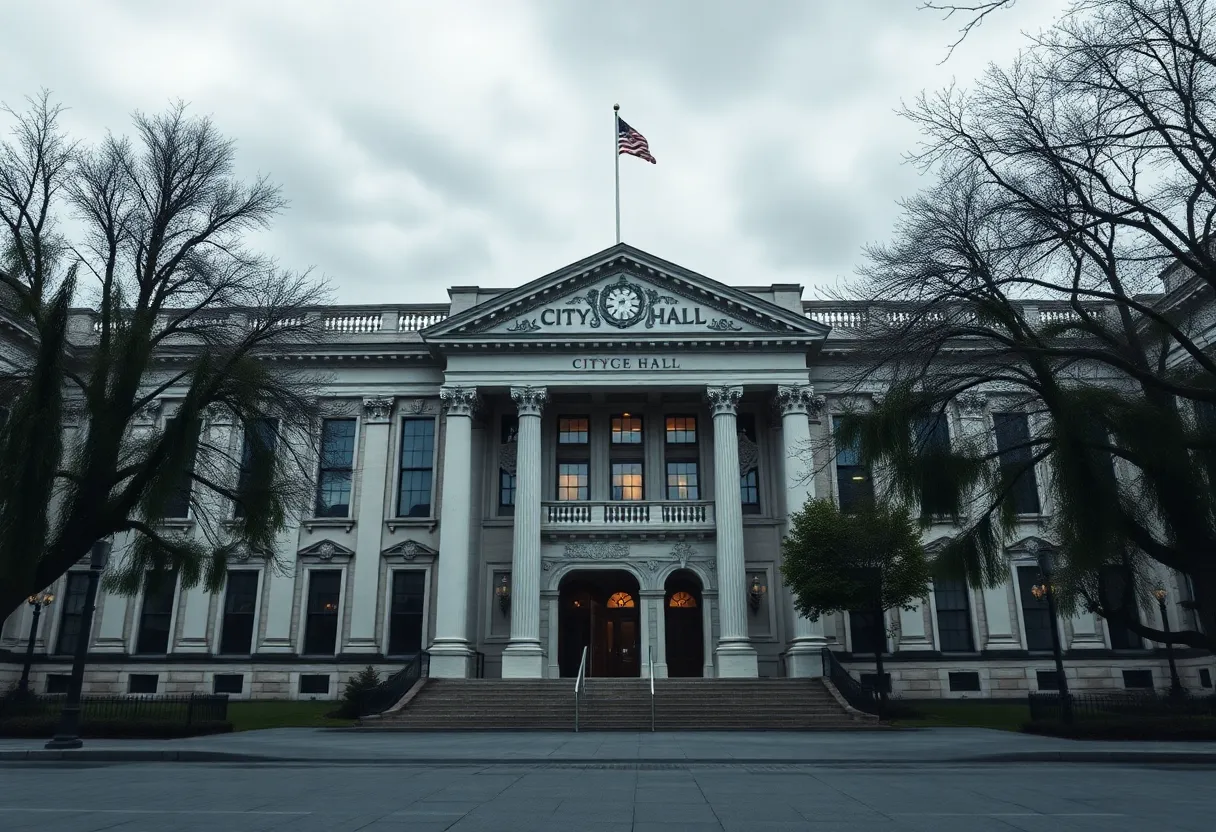California, October 6, 2025
News Summary
California has made a significant move to regulate artificial intelligence with the enactment of SB 53, the Transparency in Frontier Artificial Intelligence Act. This legislation mandates companies to disclose their safety protocols and report any risks or cyberattacks. Additionally, it includes protections for whistleblowers within the AI sector. The law aims to balance innovation with essential safety measures amid growing concerns over AI’s potential risks, including threats to critical infrastructure and misuse of technology. SB 53 may set a precedent for similar regulations across the nation.
California has taken a significant step towards regulating artificial intelligence with the signing of SB 53, known as the Transparency in Frontier Artificial Intelligence Act. This landmark legislation, signed by Governor Gavin Newsom, is designed to enhance safety protocols for advanced AI systems developed within the state.
The new law requires companies working on advanced AI technologies to publicly disclose their safety and security protocols. Moreover, businesses must report any potential risks identified, as well as incidents of cyberattacks that occur without human oversight. This move is aimed at mitigating the catastrophic risks associated with AI, which include cyber threats to critical infrastructure and the possible misuse of AI technologies, such as creating biological weapons.
In addition to the disclosure requirements, SB 53 introduces whistleblower protections for employees in the AI sector who report unsafe practices. This provision is significant in promoting a culture of safety and accountability within the industry.
Senator Scott Wiener, the author of the bill, previously attempted to pass a similar measure, SB 1047, which was vetoed by Newsom last year. Wiener has highlighted the need to find a balance between encouraging innovation and ensuring safety in the rapidly evolving realm of artificial intelligence.
While the legislation aims to establish robust safety measures, there are ongoing debates regarding its implications. Some industry observers are concerned about the effectiveness of state regulators in understanding complex AI technologies. Others speculate whether the new regulations will benefit businesses or hinder their ability to innovate due to increased compliance costs.
Amid this regulatory landscape, companies are continuing to roll out new AI products. For instance, OpenAI has launched a major e-commerce feature that allows users to purchase products directly through ChatGPT, positioning it as a serious competitor to Google in the online shopping space. Furthermore, Slack has introduced an AI tool named Channel Expert, designed to enhance communication and productivity for small businesses. It answers frequently asked questions and provides context-aware information. Google has also launched a centralized hub that simplifies access to advertising, analytics, and support tools for small businesses, while Squarespace has rolled out new AI features focused on website optimization, including SEO enhancements and design improvements.
The passage of SB 53 could serve as a framework for potential future legislation in other states, potentially paving the way for a national safety standard for artificial intelligence. As the industry continues to evolve, the debate over safety versus innovation remains a critical topic among stakeholders.
Key Features of SB 53
- Public disclosure of safety protocols by AI companies
- Mandatory reporting of potential risks and cyberattacks without human oversight
- Whistleblower protections for AI workers
- Emphasis on balancing innovation safety in AI technology
- Potential model for national AI safety legislation
Frequently Asked Questions
What is SB 53?
SB 53 is the Transparency in Frontier Artificial Intelligence Act, which regulates the development of advanced AI systems in California.
What are the main requirements of SB 53?
The law mandates that companies disclose their safety and security protocols, report potential risks, and incidents of cyberattacks that occur without human oversight. It also includes whistleblower protections for AI workers.
What potential risks does SB 53 address?
SB 53 aims to address risks such as cyberattacks on critical infrastructure and the misuse of AI technologies in creating biological weapons.
How might SB 53 impact innovation?
Some observers believe that SB 53 could stifle innovation and create compliance costs for AI companies, while others argue it strengthens accountability and safety in the industry.
Deeper Dive: News & Info About This Topic
- TechCrunch: California’s New AI Safety Law
- New York Times: California AI Safety Law
- Politico: Newsom Signs AI Law
- Wikipedia: Artificial Intelligence – Ethics and Safety
- Vox: California’s AI Law Explained

Author: Anaheim Staff Writer
The Anaheim Staff Writer represents the experienced team at HEREAnaheim.com, your go-to source for actionable local news and information in Anaheim, Orange County, and beyond. Specializing in "news you can use," we cover essential topics like product reviews for personal and business needs, local business directories, politics, real estate trends, neighborhood insights, and state news affecting the area—with deep expertise drawn from years of dedicated reporting and strong community input, including local press releases and business updates. We deliver top reporting on high-value events such as major conventions at the Anaheim Convention Center, including NAMM and VidCon, exciting games at Angel Stadium and Honda Center, and developments at Disneyland Resort Our coverage extends to key organizations like the Anaheim Chamber of Commerce and Visit Anaheim, plus leading businesses in hospitality, entertainment, and innovation that power the local economy As part of the broader HERE network, including HERECostaMesa.com, HEREHuntingtonBeach.com, HERESantaAna.com, and HERELosAngeles.com, we provide comprehensive, credible insights into Southern California's dynamic landscape.




